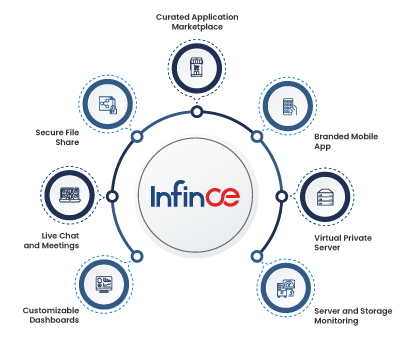Definition and Evolution of Digital Workplace Platforms
Digital workplace platforms have evolved tremendously over the past few years, with the modern workplace requiring much more than just a basic communication tool. In a dynamic business environment where change is the only constant, employees require a cohesive digital experience to collaborate, access important information, communicate with colleagues seamlessly, and manage their workload effectively.
As a result, modern digital workplace platforms now provide a range of features that enable businesses to meet these needs. A suite of applications that enable businesses to function remotely, collaborate online, and have access to cloud-based tools to run day-to-day operations, digital workplace platforms include communication tools such as email, instant messaging, video conferencing, and project management tools. Analogously, these platforms act as virtual offices where employees can share files, communicate with colleagues, and complete work tasks. A digital workplace platform is like a toolbox that provides everything you need to get the job done from anywhere on any device, examples of which include HR databases, knowledge management systems, and customer relationship management software.
Read more: What is a Digital Workplace: A Complete Guide!
Employee Experience: The Key Driver
Several studies have confirmed that a positive employee experience leads to higher engagement, productivity, retention, and even profitability. For example, according to a 2023 Gartner Survey, 83% of HR leaders believe employee experience is crucial to their organization’s success. On the other hand, companies with poor employee experience see high turnover rates, low productivity, a bad work culture, and even customer dissatisfaction.
For a digital workspace to translate to building a positive employee experience, personalization, mobile accessibility, and ease of use are some critical ingredients.
1. Personalization involves tailoring the digital workspace experience to each employee’s unique needs and preferences – this can be achieved through customized dashboards, relevant information feeds, or custom notifications.
2. Mobile accessibility means enabling employees to work from anywhere, anytime, on any device. An easy-to-use interface and accessibility from anywhere ensure employees can navigate the digital workplace platform without friction, frustration, or confusion. This also contributes to shorter learning curves and lesser training mandates.
Robust Integration with Third-Party Applications: A Must-have
According to a study conducted by the Aberdeen Group, companies that integrate their enterprise applications experience a 20% increase in productivity. This includes everything from marketing, sales, and supply chain management to HR and finance. Key integration capabilities that need to be present in a digital workplace include compatibility, security, and scalability. Compatibility means having the ability to integrate with a variety of applications, ensuring that you have access to your entire suite of tools. Security is important to ensure sensitive data remains safe and protected. Finally, scalability refers to the ability to add or remove apps as needed without disrupting the current workflow.
The Three Cs – Cloud, Collaboration, and Communication
Microsoft reported a 27% increase in revenue from investing in intelligent cloud, with an overall revenue uptick of 39% attached to the cloud. If you want to take a leaf from their book, you know where to put your money. Cloud-hosting is your best bet for a digital workplace platform especially because it safeguards important information, reduces the risk of data loss, increases security, and of course, allows your employees to share and access files from a central location, lending to a simple and seamless experience. Following suit, communication, and collaboration are key elements that have to fall in place if a digital workplace platform is considered successful.
Read more: Role of a Digital Workplace Platform in Hybrid Workplace
Adherence to Regulatory Compliance and Security: The Much-needed Protocol
Adherence to security and compliance policies is critical to the success of digital workplace platforms. Companies that comply with regulations and protect user data enjoy higher levels of trust and customer loyalty, leading to increased revenue and growth. It is essential to prioritize security and compliance to safeguard against the cost and reputational damage of a security breach. The implementation of security features like single sign-on, two-factor authentication, and data encryption has become crucial for digital workplace platforms to protect sensitive information. According to a report by Verizon, over 80% of data breaches are caused by weak or stolen credentials, which can be prevented by using these security measures. Companies like Slack and Microsoft Teams have successfully implemented these features, resulting in improved security and increased adoption rates. In fact, Microsoft Teams reported a record 2.7 billion meeting minutes in a single day in March 2020, attributed to the platform’s security measures.
Embracing Web3 Technologies
Gartner predicts that by 2024, AI will have automated as much as 75% of the manual work involved in project management-related administrative tasks. Better yet, a study by Accenture found that AI adoption could increase workplace productivity by as much as 40%.
Artificial intelligence (AI) and Machine Learning learning (ML) are becoming increasingly important in the digital workplace, and new platforms are designed to leverage these technologies to enhance productivity and automate routine tasks. One example of how these technologies help personalize user experiences is through intelligent recommendations. By analyzing employee behavior, such as the types of tasks they complete, the documents they access, and the apps they use, ML algorithms can suggest relevant content, information, and tools that are unique to each user. This personalized approach helps employees work more efficiently and effectively by streamlining workflows and reducing the time spent searching for information.
Connect with our experts know more about InfinCE






